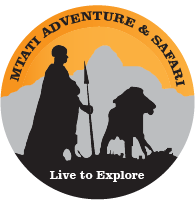Responsible Travel: Essential Guidelines for Your Tanzania Adventure

Responsible Travel: Essential Guidelines for Your Tanzania Adventure
Embarking on a journey to Tanzania is a remarkable experience, offering the chance to explore some of the world’s most pristine national parks, where wildlife has thrived for centuries. However, with these natural wonders comes a significant responsibility. To help preserve these areas for future generations, it’s vital to be aware of key sustainability practices.
This article outlines what to avoid during your Tanzania adventure, providing practical tips to ensure your trip is enjoyable, environmentally conscious, and respectful of wildlife and local communities.
Avoid Encouraging Off-Road Driving
Safari guides are trained to adhere to strict guidelines that prohibit off-road driving. While it may seem harmless to move a few meters closer for a better view of wildlife, this action can inadvertently harm the environment by crushing nests or endangering small animals like lizards and frogs. With nearly a million visitors to Tanzania’s national parks each year, even minor infractions can lead to significant ecological damage. Following established routes ensures that these precious ecosystems remain intact.
Keep Noise to a Minimum
If an animal is not paying attention to you, resist the urge to whistle, shout, or make loud noises to attract its attention. Such sounds are unnatural in the savannah and can cause stress to the animals. Additionally, loud behavior can disrupt other visitors who are trying to enjoy a peaceful experience.
Avoid Flash Photography
When participating in night, early morning, or late evening safaris, refrain from using your camera’s flash. Bright lights can be harmful to wildlife, particularly nocturnal species that rely on their night vision. Flash photography can disorient animals like bush babies and leopards, making it difficult for them to navigate and hunt.
Do Not Feed Wildlife
While it may seem harmless to offer food to animals, feeding them can have detrimental effects. Human food can be harmful and encourages wildlife to become dependent on tourists, often leading to aggressive behavior. For instance, in Tarangire National Park, monkeys have been known to snatch food from visitors, resulting in bites and scratches. To protect both yourself and the animals, never feed wildlife.
Dispose of Cigarette Butts Properly
Cigarette butts are a significant cause of bushfires. Smokers should collect their butts and dispose of them in designated bins. In recent years, Kilimanjaro has experienced serious bushfires, and while the exact causes are unclear, careless disposal of cigarette butts may be a contributing factor.
Do Not Litter
Always ensure that any trash you generate is disposed of responsibly. On safari, you can hand your waste to your guide or dispose of it in designated areas at lodges. When climbing Mount Kilimanjaro, special recycling bins are available, and staff will assist with waste collection.
Leave Natural Items in the Parks
It may be tempting to take home a bone, stone, or leaf as a souvenir, but removing anything from national parks disrupts the natural balance and is illegal. This includes collecting seashells or marine life while visiting Zanzibar. With millions of visitors each year, the impact on marine ecosystems can be severe. Leave all natural items where they belong to preserve the environment.
Avoid Purchasing Ivory Souvenirs
If offered items made from elephant tusks, always refuse. The trade of ivory is strictly prohibited in Tanzania, and severe penalties await anyone caught with it at the airport.
Be Cautious of Wildlife-Related Businesses
Some establishments may falsely present themselves as wildlife advocates by keeping wild animals on their premises. These businesses often allow visitors to interact with animals, which can be misleading. Legitimate wildlife rehabilitation facilities are managed by recognized organizations, and it’s best to avoid places that exploit animals for tourism.
Avoid Visiting Schools or Orphanages for Photo Opportunities
While many travelers wish to help underprivileged children, it’s advisable to avoid places that encourage direct interaction with children for the sake of tourism. These experiences are often staged and primarily benefit the establishment owners rather than the children. If you want to contribute, consider reaching out to legitimate schools to inquire about their actual needs.
Steer Clear of Paid Volunteering Opportunities
Be cautious of volunteering opportunities that require a fee, as these often prioritize profit over genuine educational benefits. Many of these programs accept anyone willing to pay, regardless of their qualifications, which can compromise the quality of education for the children involved.
Always Ask for Permission Before Taking Photos
If you encounter a Maasai warrior or any local person and wish to take a photo, always ask for permission first. Never photograph children without parental consent. Respecting privacy and dignity is essential.
Dress Appropriately
While revealing clothing may be acceptable in some areas of mainland Tanzania, it’s important to dress modestly in Zanzibar, particularly in places like Stone Town, which has a predominantly Muslim population. While beachwear is fine along the coast, it’s best to opt for more conservative attire when exploring urban areas to show respect for local customs.
Support Local Restaurants
When dining out, consider choosing local eateries. This not only supports the local economy but also ensures that the benefits of tourism reach Tanzanian communities directly. Look for recommendations from locals or your travel manager for great dining options.
Report Any Illegal Activities
If you witness any concerning behavior during your trip, such as child exploitation or harassment, inform your guide immediately. They can relay the information to the appropriate authorities. Your vigilance is crucial in helping protect the community and its vulnerable members.
By adhering to these guidelines, you can contribute to the preservation of Tanzania’s natural beauty and support its local communities during your travels.




